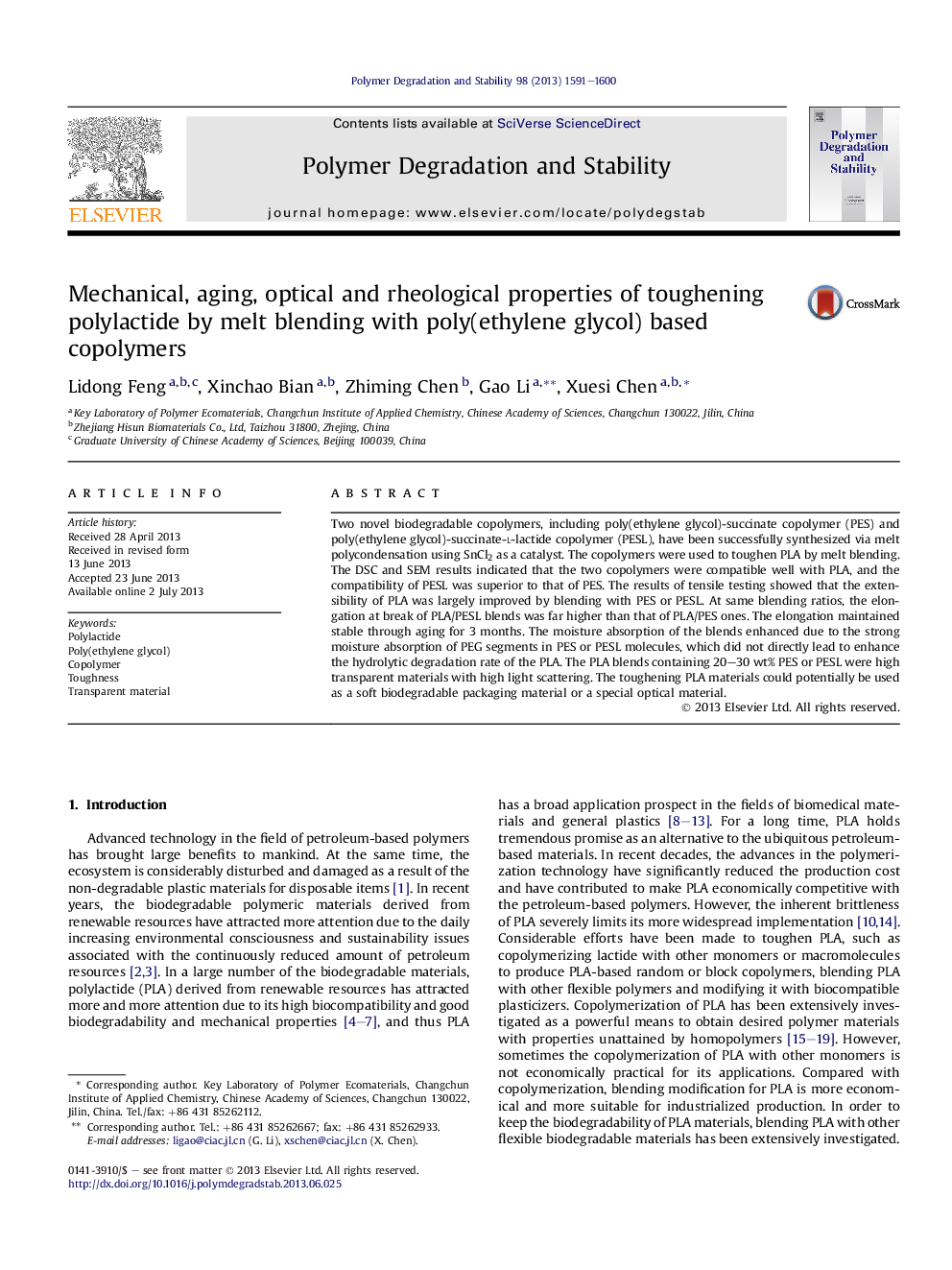| Article ID | Journal | Published Year | Pages | File Type |
|---|---|---|---|---|
| 5202011 | Polymer Degradation and Stability | 2013 | 10 Pages |
Abstract
Two novel biodegradable copolymers, including poly(ethylene glycol)-succinate copolymer (PES) and poly(ethylene glycol)-succinate-l-lactide copolymer (PESL), have been successfully synthesized via melt polycondensation using SnCl2 as a catalyst. The copolymers were used to toughen PLA by melt blending. The DSC and SEM results indicated that the two copolymers were compatible well with PLA, and the compatibility of PESL was superior to that of PES. The results of tensile testing showed that the extensibility of PLA was largely improved by blending with PES or PESL. At same blending ratios, the elongation at break of PLA/PESL blends was far higher than that of PLA/PES ones. The elongation maintained stable through aging for 3 months. The moisture absorption of the blends enhanced due to the strong moisture absorption of PEG segments in PES or PESL molecules, which did not directly lead to enhance the hydrolytic degradation rate of the PLA. The PLA blends containing 20-30Â wt% PES or PESL were high transparent materials with high light scattering. The toughening PLA materials could potentially be used as a soft biodegradable packaging material or a special optical material.
Related Topics
Physical Sciences and Engineering
Chemistry
Organic Chemistry
Authors
Lidong Feng, Xinchao Bian, Zhiming Chen, Gao Li, Xuesi Chen,
